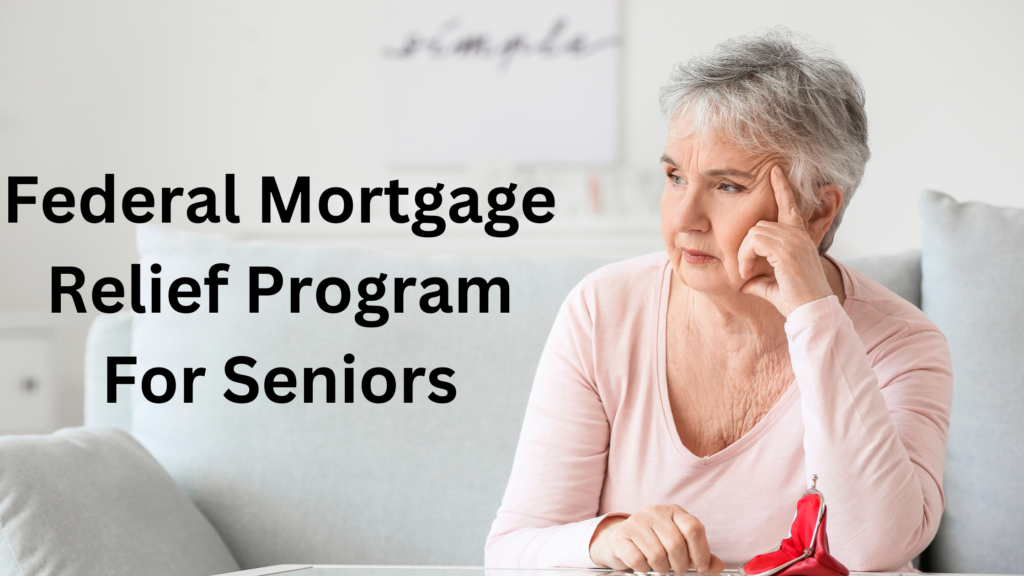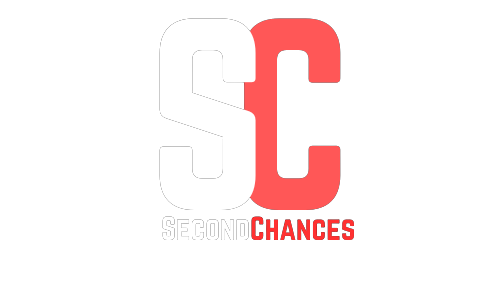If you are a senior living on a fixed income, it can be not easy to afford your mortgage. Many Americans are still looking for federal mortgage relief program for seniors despite the overall improvement in financial health since the Coronavirus pandemic began.
Several programs are available for seniors who are experiencing financial hardship and are having difficulty making their primary residence payments. In this article, we will introduce you to several federal mortgage relief program for seniors that may help you to pay off your loans.
Table of Contents
Is There Any Federal Mortgage Relief Program For Seniors In 2023?

As a result of the COVID-19 pandemic in 2020, the federal government introduced a mortgage relief program for seniors and several mortgage assistance programs. Programs have been launched over the last three years to assist homeowners, including seniors, who need assistance making mortgage payments. Financial assistance may be available for homeowners who qualify.
Do You Qualify For A Lower Interest Rate?
It is possible to reduce mortgage payments by refinancing. Homebuyers who bought homes in 2020 or 2021, when rates were historically low, will probably need help to beat those rates now. The market conditions aren’t the only factor affecting your mortgage rate. Interest rates are also affected by your finances.
Refinance rates may be better if you’ve recently improved your credit score or household income. You can also pay off your credit cards or student loans since your current loan is closed. Reduce your monthly mortgage payment and extend your loan term by lowering your mortgage interest rate.
3 Mortgage Relief Options For Federal Mortgage Relief Program For Seniors
Even though there are many mortgage relief options available today, they may be fewer than they were during the Covid-19 crisis. Take a look at these options.
1. Contact Your Lender Or Servicer
Mortgage relief options are offered by lenders and servicers with differing qualifications and eligibility requirements. Contact your lender if you need help making your payments. Sometimes, you can temporarily stop making mortgage payments within a forbearance period without facing penalties. Depending on your circumstances, others may offer a payment reduction or an interest rate reduction.
Most lenders will work with you if you don’t want them to see you struggle. You can even get help based on the type of loan you have. Individuals with a loan backed by the V.A. or veterans with non-VA mortgages can consult a V.A. loan counsellor to discuss their options.
2. Try Government Programs
Federal, state, and local mortgage relief funds are available. As part of the American Rescue Plan Act, the Treasury Department offers the Homeowner Assistance Fund (HAF). You can use it to avoid mortgage delinquencies, defaults, foreclosures and other home-related hardships in the U.S. Generally, funds are disbursed state-by-state.
Each state also offers mortgage relief options. Some programs require repayment, while others are grants that don’t. See what your state offers and whether you qualify. You can also look for mortgage relief programs in your city or county.
3. Talk To A Housing Counselor
Throughout the country, the Department of Housing and Urban Development (HUD) has counsellors who can assist with housing issues. This way, you can get information about topics like buying and selling a home, but also foreclosures, defaults, and mortgage delinquencies. If you want advice from a HUD-approved counsellor, you can do so for free.
What Are The Available Mortgage Grants For Seniors?
The following is a list of mortgage grants for seniors that can be applied for by Seniorcan.
The Homeowner Assistance Fund (HAF)
The Homebuyer Assistance Fund, or the HAF, is one of the most popular federal mortgage relief program for seniors, derived from the American Rescue Plan 2021 that provides funding to the program. As a result of the financial and economic downturn caused by the pandemic, this program was developed to assist families experiencing financial difficulties.
HAF grants can be used to pay for home-related expenses such as repairs, utilities, and other domestic expenses for low-income families. In all 50 states, the HAF program assists low-income families. The Housing Assistance Fund offers financial assistance to homeowners facing mortgage delinquency, defaults on their mortgage payments, or foreclosures and at risk of losing their homes.
The U.S. Treasury Department provides detailed program guidance and information about the HAF program. The government created the $9.961 billion Homeowner Assistance Fund (HAF) to address the negative effects of COVID-19. Low-income homeowners struggling to make mortgage payments or pay other housing expenses are eligible for financial assistance from the HAF.
In the United States, the Homeowner Assistance Fund is administered by the states, territories, and tribal governments independently. In the HAF program, funding is allocated to the states. The states decide how to distribute these funds to the households that qualify. You should contact your loan service provider to determine your eligibility for the HAF program.
Purpose Of The Homeowner Assistance Fund
On March 27, 2020, President Trump signed the $2.2 trillion CARES Act into law, assisting workers, industries, families, and small businesses affected by the pandemic. During this time, all single-family mortgages backed by the federal government were required to suspend mortgage payments for up to one year under federal mortgage relief program for seniors.
Another 90-day forbearance has been introduced for multifamily units with federally backed mortgage payments. Additionally, the Consolidated Appropriations Act and American Rescue Plan Act provided mortgage relief to families hit hard by the recession. After January 21, 2020, the Homeowner Assistance Fund (HAF) aims to prevent mortgage defaults, foreclosures, loss of utilities (electricity and gas), and evictions of financially struggling families.
You can use HAF assistance to make mortgage payments, pay for insurance, pay utility bills, and repair your home. As homeowners apply for Homeowner Assistance Funds, the priority is determined by their level of financial hardship and national and local incomes.
HAF Eligibility Requirements
Participants in the Homeowner Assistance Fund must also adhere to certain eligibility requirements, just like other government assistance programs. The following requirements must be met for you or your family to qualify for HAF assistance.
- The COVID-19 pandemic has adversely affected your finances.
- HAF assistance is only available for your primary residence.
- For the program to be eligible in your state, household income must be low. HAF assistance is available to households with incomes below 150% of the area median income or $79,900 (whichever is higher).
When applying for assistance, it is advised that you confirm the income limits under the HAF with your service provider, as some states/areas have lower income limits than those mentioned above. Program-specific requirements may also apply in different areas.
Senior Home Repair Program (SHRP)
San Francisco SHRP Mortgage grants for seniors provide low and moderate-income seniors, as well as disabled homeowners who live in underserved or historically distressed neighbourhoods, with forgivable loans up to $50,000. If you are looking for mortgage grants for seniors or roofing grants for seniors, SHRP has a lot of assistance programs.
AHP, Affordable Housing Program
Around 10% of the Federal Home Loan Bank’s net income goes toward promoting affordable housing. Affordable Housing Program is a program that helps first-time homebuyers buy a house. To qualify for AHP mortgage grants for seniors, seniors and older adults must fall into the low-income category.
Low-income communities are offered mortgage grants on a competitive basis by local agencies and nonprofit organizations. You can apply for a grant program that fits your needs on the Federal Home Loan Bank’s website for mortgage grants for seniors.
Bank Of America’s Community Homeownership Commitment
Among the mortgage grants offered by Bank of America’s Community Homeownership Community are down payment and closing cost assistance. By contacting the Bank Of America Down Payment Center, seniors can access mortgages with low down payments.
There is no down payment requirement, no recurring costs, no prepaid items, and no property taxes are allowed under America’s Home Grant. Approximately 3% of the home purchase price can be applied to a down payment grant provided by Bank of America. A down payment assistance program of up to $10,000 is available to seniors.
There are also some other options when it comes to mortgages.
1. FHA Loans
The Federal Housing Administration manages FHA loans. Buyers benefit from it by receiving lower down payments and closing costs because it insures their loans. Find out how FHA loans can benefit first-time homebuyers, seniors, and those buying mobile homes.
FHA Loan Eligibility
There is no need to have a high credit score in general. Depending on its location, the house must meet FHA loan limits. To qualify for an FHA loan, you must use a lender approved by the agency.
Find an FHA-Approved Lender.
Find an FHA-approved lender by visiting the Housing and Urban Development (HUD) website.
2. Refinance To Lower Your Payments
It may be possible to reduce monthly payments by refinancing into a new mortgage for some homeowners. Getting a loan with a lower interest rate has become harder because of today’s high-interest rates.
Although you may not be able to lower your mortgage rate, extending the term of your loan may lower your monthly payments. In exchange for lower payments, you’ll owe more interest over time.
Refinancing With Low Equity
During the past few years, the value of homes has skyrocketed, leaving less than 2% underwater. It is possible for homeowners who made a small down payment or recently refinanced to qualify for a refinance.
Moreover, refinancing is for more than just people with perfect credit. You can refinance with little, no, or negative equity with some programs, like the government-backed Streamline Refinance.
Refinancing After Forbearance
You used to have a hard time refinancing after forbearance. There are fewer rules now. COVID-19 caused an unprecedented spike in mortgage forbearance.
In three months after ending their forbearance plans, many homeowners can refinance. Loan programs and mortgage lenders have different application guidelines. You can determine your qualify by talking to a loan officer or mortgage broker.
3. Streamline Refinancing For FHA, VA, And USDA Loans
Conventional borrowers don’t have access to the same mortgage programs as FHA, VA, and USDA borrowers. There’s a Streamline Refinance they can do. Like a mortgage relief refinance, a Streamline Refinance lets you refinance even if there’s negative equity in your home. The term “underwater” is used by some people.
There are other benefits to a Streamline Refinance, too.
- I don’t have to do as much paperwork. The home won’t need to be appraised or re-verified
- The interest rate on government-backed loans is usually lower than the market rate
- It’s usually cheaper to close
FHA Streamline is available to homeowners who have made three consecutive on-time payments on their existing loan. Forbearance doesn’t mean you can’t refinance with FHA Streamline. One of the more lenient housing agencies is the Department of Housing and Urban Development (HUD).
When it comes to V.A. Streamline Refinances, the rules are more lenient. Refinance even if you’re delinquent on your current loan. Lenders have to verify that you’ll be able to pay down the new loan and that the reason for delinquency has been resolved.
4. Home Possible
Low-income home buyers can get a 3% down payment mortgage, called Home Possible, similar to HomeReady. There’s a fixed-rate and an adjustable-rate Home Possible mortgage. Seniors can get low-down-payment mortgage loans with mortgage grants if their credit score is 660.
Beware Of Mortgage Relief Scams.
It’s unfortunate, but some scammers target homeowners going through foreclosure to get money. You’ll often get a call directly from them, and they’ll suggest:
- Become your lender’s point of contact and negotiate on your behalf
- Start the bankruptcy process to stop foreclosure
- Propose legal help and then send unqualified people to represent you
- Getting a fee to make sure you stay in the house
- Helping you keep your house by performing a forensic audit
- Sign the fake documents they send you
Contact the Federal Trade Commission if you suspect these scams have happened.
FAQs Federal Mortgage Relief Program For Seniors
Is There Any Mortgage Relief Program Supporting USDA Loans?
USDA streamlined refinances are less expensive and faster than conventional refinances if you have a USDA loan.
How Can I Skip My Mortgage Payment Without Any Penalty?
You can avoid missed payments and fees by contacting your lender and asking for forbearance or a mortgage modification.
What Is The Grace Period For The Mortgage We Took?
There’s a grace period for mortgage payments (typically 15 days) during which you are not penalized. If you pay your mortgage on time, you can avoid late fees. June 17, 2023.


